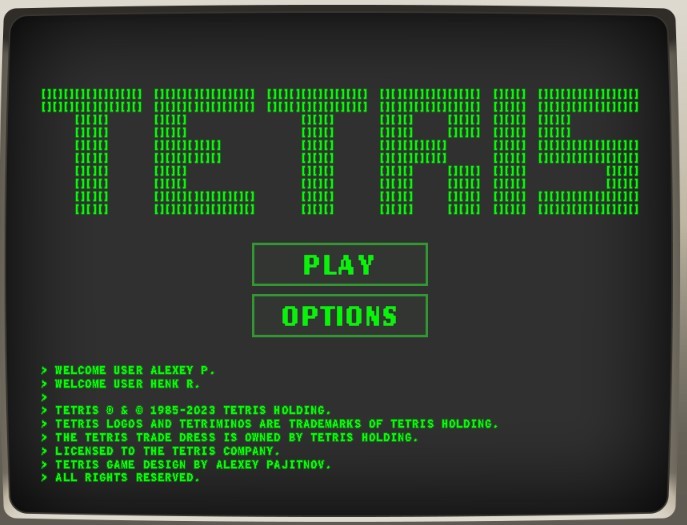Tetris is believed to be able to help prevent PTSD among people who have witnessed traumatic events, scientists suggest.
After seeing horrifying tragedies, many people turn to online communities and platforms to discuss and process their experiences. One of the most common advice that they get is to play Tetris to try and overcome the memories.
Tetris Could Help Prevent PTSD

(Photo : Tetris Holding LLC / Screenshot taken from official website)
Some have questioned the effectiveness of this advice and based on the scientific community, the answer is a partial yes. This is due to several factors, such as specific symptoms, the timing of the event, and if the patient is receiving other types of psychological treatment.
This suggestion comes as Tetris is a game that first appeared in 1985 and is considered to be a deceptively simple computer game. But today, it remains one of the most popular games in history and is available for free online on many different platforms.
Tetris involves a simple task to line up blocks on the screen as a series of randomly generated shapes drop down from the top. When a line is completed, it is removed and the player gets points. If they fail and the blocks reach the top, it is game over, according to ScienceAlert.
On the other hand, PTSD, or post-traumatic stress disorder, is where a single traumatic event or series of traumas create a collection of distressing symptoms. This could include reliving the event in question through nightmares and flashbacks, a sense of the world being darker, hypervigilance, and constant fear.
A person's brain is seemingly inoculated by the traumatic experience and is sensitized to anticipate further trauma. Researchers at the University of Oxford proposed in 2019 that playing Tetris when the brain is trying to store visual memories could overload its capacity and "distract" the visual memory circuits.
Read Also: Stone Blade Entertainment Releases SolForge Fusion in Steam Early Access
This means that playing the game after a distressing event could interrupt the processing centers within a person's brain. This would in turn reduce the recurrence of unwanted visual memories associated with the trauma.
There are also various other research that found that playing Tetris for only 20 minutes at a time could be enough to trigger the change in mothers who had childbirth-related issues up to seven years after the event itself if their memory is reactivated, said The Sun.
Affecting a Person's Memories
University of Oxford's Dr. Catherine Deeprose said that there is a period of up to six hours in which it is entirely possible to affect certain types of memories that are laid down in the human mind.
The medical professional added that in healthy volunteers, playing Tetris in this time window can reduce flashback-type memories without wiping out the ability to make sense of the event. Other treatments for the disorder include therapies and antidepressants.
Other than helping PTSD patients, Tetris has also helped MIT researchers in developing an advanced radiation detector. Researchers at MIT and the Lawrence Berkeley National Laboratory (LBNL) have created a computational basis for designing very simple, streamlined versions of sensor setups.
These are able to pinpoint the direction of a distributed source of radiation. They also demonstrated that by simply moving that sensor around to get multiple readings, they can also pinpoint the physical location of the source. The researchers drew inspiration from Tetris for their clever innovation, according to IndiaEducationary.
Related Article: Castlevania: Legacy of Darkness Players Find New Konami Code After 25 Years!










